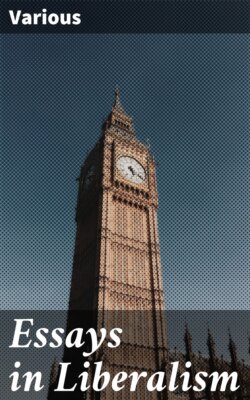Читать книгу Essays in Liberalism - Various - Страница 18
На сайте Литреса книга снята с продажи.
The Change since Castlereagh
ОглавлениеTable of Contents
Now, it was this condition, essential to the maintenance of Castlereagh’s Balance of Power, which completely broke down during the course of the nineteenth century. Like most of the vital processes in history, the change was gradual and unobtrusive, and its significance escaped the notice of politicians, journalists, and even historians. Men went on repeating Castlereagh’s phrases about the Balance of Power without perceiving that the circumstances, which alone had given it reality, had entirely altered. The individual independence and automatic action of the Great Powers in checking the growing ambitions and strength of particular States were impaired, if not destroyed, by separate Alliances, which formed units into groups for the purposes of war and foreign policy, and broke up the unity of the European system, just as a similar tendency threatens to break up the League of Nations. There was a good deal of shifting about in temporary alliances which there is no need to recount; but the ultimate upshot was the severance of Europe into the two great groups with which we are all familiar, the Triple Alliance of Germany, Austria, and Italy on one side, and the Triple Entente between Russia, France, and Great Britain on the other. The multiple Balance of Power was thus changed into a simple balance between two vast aggregations of force, and nothing remained outside to hold the balance, except the United States, which had apparently forsworn by the Monroe Doctrine the function of keeping it even.
And yet men continued to speak of the Balance of Power as though there had been no change, and as though Castlereagh’s ideas were as applicable to the novel situation as they had been to the old! That illustrates the tyranny of phrases. Cynics have said that language is used to conceal our thoughts. It is difficult to resist the conclusion that phrases are used to save us the trouble of thinking. We are always giving things labels in order to put them away in their appropriate pigeon-holes, and then we talk about the labels without thinking about them, and often forgetting (if we ever knew) the things for which they stand. So we Pelmanised the Balance of Power, and continued to use the phrase without in the least troubling to ask what it means. When I asked at the Foreign Office whether diplomatists meant by the Balance of Power the sort of simple balance between two great alliances like the Triple Alliance and the Triple Entente, I was told “yes”; and there was some surprise—since the tradition of Castlereagh is strong in the service—when I pointed out that that was an entirely different balance from that of which Castlereagh had approved as a guarantee of peace. You remember the Cheshire cat in Alice in Wonderland—an excellent text-book for students of politics—and how the cat gradually faded away leaving only its grin behind it to perplex and puzzle the observer. So the body and the substance of Castlereagh’s Balance of Power passed away, and still men talk of the grin and look to the phrase to save them from war. Whether to call them visionaries or the blind, I do not know.
